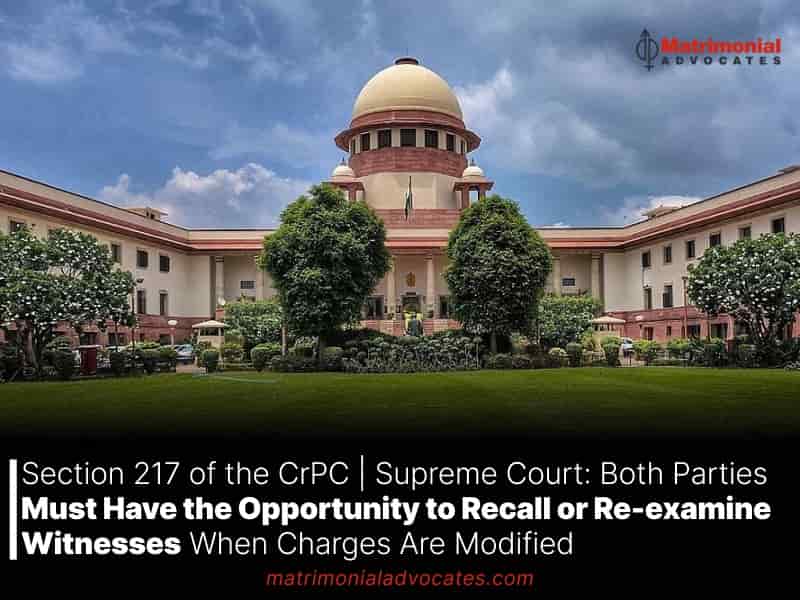
The Supreme Court ruled that when charges are modified, both parties must have the chance to recall or re-examine witnesses concerning the modified charges, and the reasons for the alteration must be documented in the judgment.
“A Court may alter or add to any charge before judgment is pronounced but when charges are altered, opportunity must be given under Section 217 of the Cr.P.C., both to the Prosecution and the defence, to recall or re-examine witnesses in reference to such altered charges. More importantly, in case, charges are altered by the Court, reasons for the same must be recorded in the judgment.”, the bench comprising Justices Hrishikesh Roy and Satish Chandra Sharma said.
The Court reversed the accused’s conviction to acquittal due to two legal deficiencies: the altered charges under Section 302 read with Section 34 of the IPC were not communicated and explained to the accused, and the prosecution failed to provide evidence demonstrating a ‘common intention’ among the accused in committing the crime.
Initially, the charge against the accused was framed under Section 302 read with Section 149 (Common Object) of the Indian Penal Code (IPC). This charge was later altered to Section 302 read with Section 34 (Common Intention). However, this alteration was neither communicated nor explained to the accused, and the reasons for the alteration were not recorded in the judgment.
Citing the case of Rohtas v. State of Haryana, the Court emphasized that when a charge is changed from ‘common object’ to ‘common intention,’ the prosecution must provide relevant evidence to establish the existence of common intention, as ‘common object’ and ‘common intention’ are distinct concepts.
“The Court also has the responsibility to analyze and assess the evidence before convicting a person with the aid of Section 34 of the IPC. Importantly, a mere common intention per se may not attract Section 34 IPC without action in furtherance of such common intention.”, the court observed.
“Unfortunately, the common intention of the appellants was never established by the prosecution to connect them with the crime charged. Moreover, there was no discussion by the Court on the aspect of common intention.”, the court added.
As a result, the Court extended the benefit of the doubt to the accused and overturned their conviction, leading to an acquittal.





